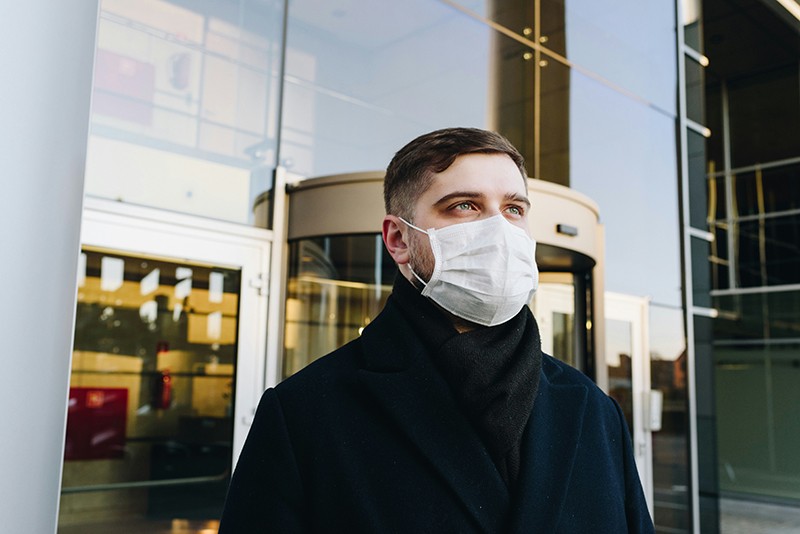 Future pandemics
Future pandemics
WHO reaches major accord to tackle future pandemics
After more than three years of intensive negotiations, WHO Member States took a major step forward in efforts to make the world safer from future pandemics, by forging a draft agreement for consideration at the upcoming World Health Assembly in May.
The proposal aims to strengthen global collaboration on prevention, preparedness and response to future pandemic threats, WHO said.
In December 2021, at the height of the COVID-19 pandemic, WHO Member States established the Intergovernmental Negotiating Body (INB)to draft and negotiate a convention, agreement or other international instrument, under the WHO Constitution, to strengthen pandemic prevention, preparedness and response.
Following 13 formal rounds of meetings, nine of which were extended, and many informal and intersessional negotiations on various aspects of the draft agreement, the INB today finalized a proposal for the WHO Pandemic Agreement. The outcome of the INB’s work will now be presented to the Seventy-eighth World Health Assembly for its consideration.
'World Made History'
"The nations of the world made history in Geneva today," said Dr Tedros Adhanom Ghebreyesus, WHO Director-General. "In reaching consensus on the Pandemic Agreement, not only did they put in place a generational accord to make the world safer, they have also demonstrated that multilateralism is alive and well, and that in our divided world, nations can still work together to find common ground, and a shared response to shared threats. I thank WHO's Member States, and their negotiating teams, for their foresight, commitment and tireless work. We look forward to the World Health Assembly's consideration of the agreement and – we hope – its adoption."
Proposals within the text developed by the INB include establishing a pathogen access and benefit sharing system; taking concrete measures on pandemic prevention, including through a One Health approach; building geographically diverse research and development capacities; facilitating the transfer of technology and related knowledge, skills and expertise for the production of pandemic-related health products; mobilizing a skilled, trained and multidisciplinary national and global health emergency workforce; setting up a coordinating financial mechanism; taking concrete measures to strengthen preparedness, readiness and health system functions and resilience; and establishing a global supply chain and logistics network.
Sovereignty Of Countries
The proposal affirms the sovereignty of countries to address public health matters within their borders, and provides that nothing in the draft agreement shall be interpreted as providing WHO any authority to direct, order, alter or prescribe national laws or policies, or mandate States to take specific actions, such as ban or accept travellers, impose vaccination mandates or therapeutic or diagnostic measures or implement lockdowns.
Dr Tedros paid tribute to the members of the Bureau who guided the INB process: Co-Chairs Precious Matsoso (South Africa) and Ambassador Anne-Claire Amprou (France), and Vice-Chairs Ambassador Tovar da Silva Nunes (Brazil), Ambassador Amr Ramadan (Egypt), Dr Viroj Tangcharoensathien (Thailand); and Ms Fleur Davies (Australia). Past members included former Co-Chair, Roland Driece (the Netherlands), and former Vice-Chairs Ambassador Honsei (Japan) and Mr Ahmed Soliman (Egypt). The Director-General also acknowledged the constant support provided by WHO Secretariat colleagues.
INB Co-Chair Matsoso said: “I am overjoyed by the coming together of countries, from all regions of the world, around a proposal to increase equity and, thereby, protect future generations from the suffering and losses we suffered during the COVID-19 pandemic. The negotiations, at times, have been difficult and protracted. But this monumental effort has been sustained by the shared understanding that viruses do not respect borders, that no one is safe from pandemics until everyone is safe, and that collective health security is an aspiration we deeply believe in and want to strengthen.”
Fellow INB Co-Chair, Ambassador Amprou, said the draft agreement is a major step in strengthening the global health security architecture so people of the world would be better protected from the next pandemic.
“In drafting this historic agreement, the countries of the world have demonstrated their shared commitment to preventing and protecting everyone, everywhere, from future pandemic threats,” Ambassador Amprou said. “While the commitment to prevention through the One Health approach is a major step forward in protecting populations, the response will be faster, more effective and more equitable. This is a historic agreement for health security, equity and international solidarity.”
The INB was established in December 2021, at a special session of the World Health Assembly , bringing together Member States and relevant stakeholders, including international organizations, private sector, and civil society. At the World Health Assembly in June 2024, governments made concrete commitments to complete negotiations on a global pandemic agreement within a year. The upcoming Assembly starting 19 May 2025 will consider the proposal developed by the INB and take the final decision on whether to adopt the instrument under Article 19 of the WHO Constitution.
(With inputs from IBNS)
Support Our Journalism
We cannot do without you.. your contribution supports unbiased journalism
IBNS is not driven by any ism- not wokeism, not racism, not skewed secularism, not hyper right-wing or left liberal ideals, nor by any hardline religious beliefs or hyper nationalism. We want to serve you good old objective news, as they are. We do not judge or preach. We let people decide for themselves. We only try to present factual and well-sourced news.







